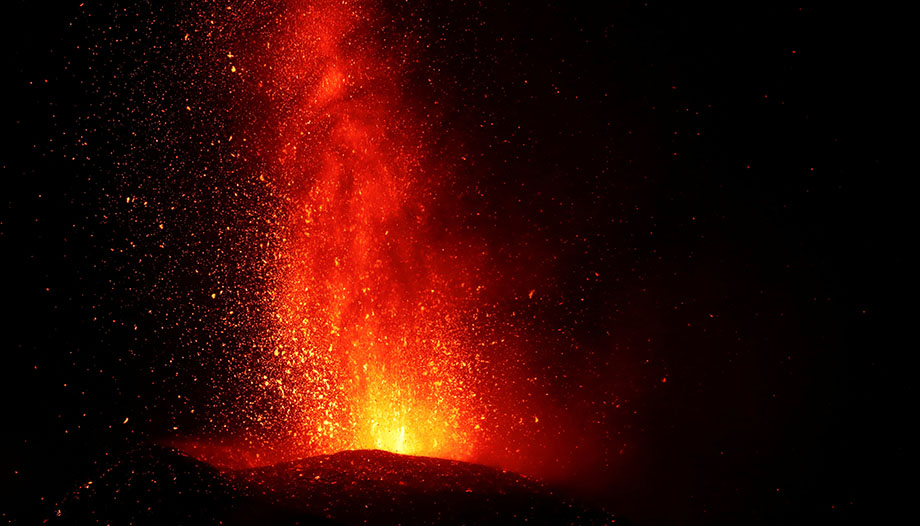"God does not exist in El Paso". The overprinted headline above the image of a huge tongue of incandescent lava engulfing a house in the palm tree town of El Paso achieved its goal and nearly tripled the "likes" of the immediately preceding and following posts published on the Instagram account of a Spanish national newspaper.
Reading the news item carefully, we discover that the phrase selected to illustrate the photograph is pronounced by Rosa, a resident of El Paso, after recalling that the volcanic eruption occurred only a month after a fire that also caused the evacuation of several neighbors due to the risk of the fire reaching their homes.
Rosa's phrase is the synthesis of man's great question about God. Who hasn't asked themselves these days where God is while contemplating the flight of families, the fear on the faces of the neighbors, the anguish of those who have lost their livelihood, their business, their illusion? We all have the right, God has given it to us, to question why, to show our doubts about his existence or his goodness in situations like these. There is an innate rebellion against injustice, against evil. Why me, why me? Why me?
On this first of October, on which we celebrate the feast of St. Therese of Lisieux, I am reminded of an excerpt from Story of a soul in which this Carmelite Doctor of the Church narrated a pilgrimage she made as a child to Rome. As she passed through Naples, she describes precisely the "cannon shots" and the "thick column of smoke" of Vesuvius and the power of God that she saw in its manifestation. Volcanic coincidence aside, the saint, whose delicate health made her suffer horribly until her death at the age of 24, recalled that trip she made with a group of very distinguished people, staying in princely hotels, and reflected on how material things are no guarantee of happiness, because "joy is not found in the things that surround us, but in the most intimate part of our soul (...). The proof is that I am happier in Carmel, even in the midst of my interior and exterior sufferings, than I am in the world, surrounded by the comforts of life.
So, can you lose a house and still be happy? can you lose your health or wait for death and still be happy? can you suffer and say that God exists and loves you?
There is a well-known little story about a man who, at the end of his days, walked along the beach in the company of Jesus, reviewing with him his whole life. Looking back he contemplated the two pairs of footprints on the sand, but, at times, the footprints were only those of one person. The man reproached the Lord: look, in the most difficult moments of my life, when I lost my job, when I had that accident, when my daughter died... In the moments when I needed you most, you left me alone. The Lord, smiling, threw his arm over his shoulder, pointed to those distant footprints and explained: look carefully. In those difficult moments, the footprints that disappear are not mine, they are yours. And the fact is that, when you could not cope with your life, it was me who took you on my shoulders and kept on walking for you.
This is the scandalous mystery of a God who has become incarnate and who has suffered with his creatures to the point of exclaiming: "My God, my God, why have you forsaken me? Isn't that, in short, Rosa's phrase about the image of the house swallowed by the magma? Faith shows us today, on the ashes of La Palma, only a pair of footprints. They are the footprints of Jesus who takes Rosa and so many others on his shoulders to help them walk, step by step, in all the Steps of our time.
Journalist. Graduate in Communication Sciences and Bachelor in Religious Sciences. He works in the Diocesan Delegation of Media in Malaga. His numerous "threads" on Twitter about faith and daily life have a great popularity.












